Door to Door Shipping from China to Iran
Door to door (D2D) Shipping effortlessly transports goods from China to Iran . Eliminating intermediaries reduces delays and damages. This transportation technique simplifies trade between the two countries by providing end-to-end solutions.
China and Iran share a robust trade relationship, fostering economic growth and development in both countries. D2D shipping supports this trade alliance by enhancing accessibility and efficiency. It is a vital component of their bilateral economic cooperation.
Contents
Overview of the China-Iran Trade Route
The China-Iran Trade way is a crucial link for trade between these two nations, facilitating the exchange of goods and fostering economic cooperation. This corridor encompasses various transportation routes and modes, ensuring the efficient movement of goods from China to Iran and vice versa.
One of the essential components of this corridor is the overland route, which connects China to Iran through Central Asia. This route provides a land-based alternative to maritime shipping and enables the transportation of goods via rail and road networks. It offers a shorter transit time than sea freight, making it a popular choice for time-sensitive shipments.
In recent years, the China-Iran railway project has gained significant attention. This ambitious railway line connects China’s northwest Xinjiang region to Iran’s capital, Tehran, covering a distance of approximately 10,000 kilometers. The railway line traverses several countries, including Kazakhstan, Turkmenistan, and Iran, significantly reducing transportation time and costs.
The China-Pakistan Economic Corridor (CPEC) also plays a pivotal role in facilitating trade between China and Iran. CPEC is a network of highways, railways, and pipelines that connect China’s Gwadar Port to Pakistan’s major cities, providing a gateway to the Arabian Sea. Iranian goods can be transported via this corridor, further enhancing connectivity and trade opportunities between the two countries.
Major Ports and Gateways in China and Iran
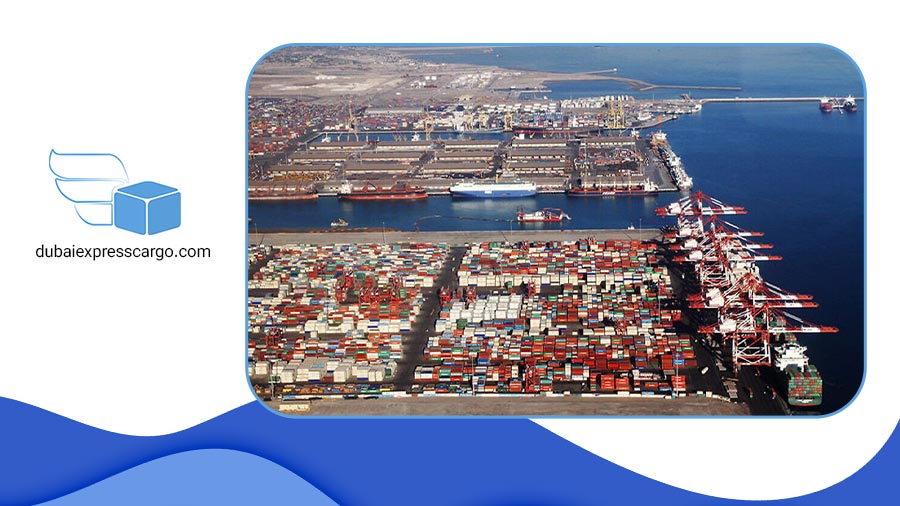
In China, the major ports that serve as gateways for international trade are Shanghai, Shenzhen, and Ningbo-Zhoushan. Shanghai Port, located along the Yangtze River Delta, is the busiest container port in the world. Shenzhen, situated in southern China, is a prominent hub for electronics and technology products. Ningbo-Zhoushan Port, located in Zhejiang province, is known for its extensive shipping connections to various global destinations.
On the Iranian side, the key ports facilitating international trade are Bandar Abbas and Chabahar. Bandar Abbas, located on the southern coast of Iran, is the country’s largest port and is a crucial gateway for containerized goods. Chabahar Port, located in southeastern Iran, has gained strategic importance due to its connectivity to the Arabian Sea and the Indian Ocean. It offers an alternative route for trade between India, Iran, and Afghanistan, bypassing Pakistan.
Transportation Modes: Air Freight vs. Sea Freight
When it comes to choosing transportation modes for shipping between China and Iran, businesses have the option of air freight and sea freight.
Air freight is ideal for time-sensitive shipments and high-value goods. It offers faster transit times, making it suitable for urgent deliveries. However, air freight can be more expensive compared to sea freight, making it ideal for smaller shipments or items with higher value-to-weight ratios.
Sea freight, on the other hand, is a cost-effective option for bulk shipments and goods with longer lead times. While it takes longer than air freight, advancements in maritime logistics have improved transit times significantly. Sea freight is particularly suitable for bulky and non-perishable items, offering a more economical choice for businesses engaged in larger-scale trade.
Transit Times and Expected Delays
The transit times between China and Iran vary depending on the chosen transportation mode and the specific route. For overland ways, such as those facilitated by the China-Iran railway, transit times can range from 10 to 15 days, offering a faster alternative to sea freight.
For sea freight, the transit times from major Chinese ports to Bandar Abbas or Chabahar can vary from 15 to 30 days, depending on the specific shipping line and route. Weather conditions, port congestion, and customs procedures can affect transit times and lead to occasional delays.
To minimize delays and ensure timely delivery, businesses should plan their shipments well in advance and work closely with reliable shipping partners. Proper documentation and compliance with customs regulations also contribute to smoother logistics processes, reducing the likelihood of unexpected delays during transit.
Key Considerations for Door to Door Shipping from China to Iran

- Customs Regulations and Documentation:
Both China and Iran have specific import and export requirements that businesses must comply with to avoid delays and penalties. Familiarizing yourself with these regulations and preparing accurate and complete shipping documents will facilitate a seamless customs clearance process.
- Import and Export Requirements in China and Iran:
The requirements may include permits, licenses, and restrictions on certain goods. Compliance with these regulations is essential to prevent shipment hold-ups and possible legal consequences.
- Necessary Shipping Documents:
Essential shipping documents include commercial invoices, packing lists, bills of lading, and certificates of origin. Providing accurate and complete paperwork helps prevent customs issues and ensures a smooth flow of goods from China to Iran.
- Packaging and Labeling Guidelines:
Sturdy packaging that protects against damage and proper labeling with necessary details like product description, weight, and handling instructions are crucial considerations.
- Ensuring Safe and Secure Packaging:
Proper cushioning and protective measures should safeguard the goods from potential impacts or environmental hazards.
- Complying with Labeling Standards:
Labeling standards ensure packages are handled correctly throughout the shipping process. Labels should be clear, visible and include all necessary information, such as shipping addresses and special handling instructions.
- Dealing with Duties, Taxes, and Tariffs:
Understanding the duties, taxes, and tariffs that apply to shipped goods is vital for accurate cost estimation and avoiding unexpected financial burdens. Duties and taxes are typically calculated based on the value of the goods, while tariffs are specific fees imposed on certain types of products.
- Understanding Duty and Tax Calculation:
Businesses should know how to calculate import duties and taxes in China and Iran. This includes understanding the applicable duty rates and taxes based on the goods’ classification and value. Accurate calculation ensures the correct amount is paid during customs clearance.
- Common Tariff Classification and Codes:
The correct tariff classification and codes for the goods are essential for proper customs declaration. Harmonized System (HS) codes are used internationally to classify products, and ensuring the correct code helps prevent delays and errors during customs processing.
Choosing the Right Door to Door Shipping Provider from China to Iran
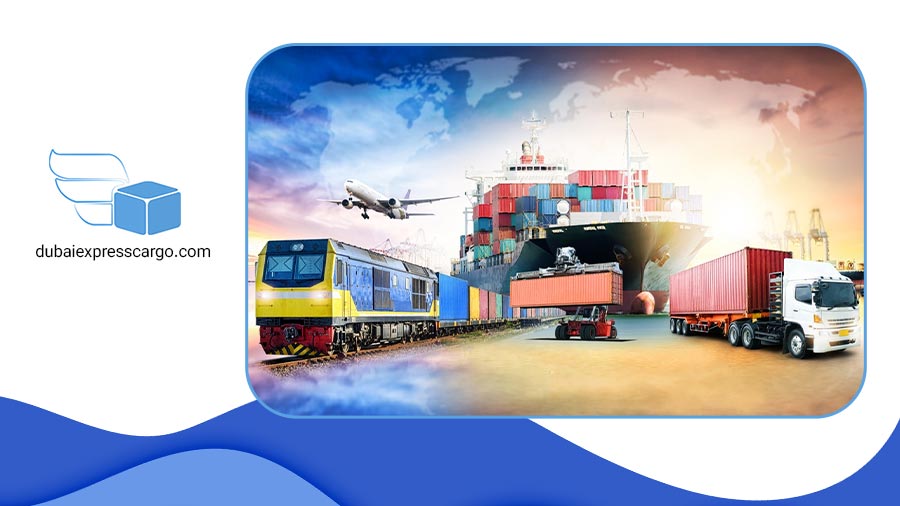
1. Researching and Selecting Reliable Shipping Companies:
Thoroughly research shipping companies that offer door-to-door services to ensure their credibility and track record.
2. Evaluating Freight Forwarders and Customs Brokers:
Check freight forwarders’ and customs brokers’ expertise and experience for a smooth shipping process.
3. Customer Reviews and Testimonials:
Read reviews and testimonials from other customers to gauge the quality of the shipping provider’s services.
4. Cost and Service Comparisons:
Compare shipping costs and services different providers offer to find the most suitable option.
Dubai Express Cargo is a reputable company specializing in export, import, goods clearance, and inspection. We ensure reliable door-to-door delivery of your goods, providing excellent service and customer satisfaction. With our expertis, you can trust us for efficient and seamless shipping between China and Iran.
Tracking and Monitoring Shipments from China to Iran
1. Utilizing Tracking Tools and Technology:
Employ advanced tracking tools and technology to monitor shipments in real-time and ensure their location and status.
2. Staying Updated on Shipment Status:
Regularly check for updates on shipment progress to stay informed about any changes or potential issues.
3. Dealing with Delays and Contingency Plans:
Be prepared for delays and have contingency plans to address unforeseen circumstances.
The Importance of Effective Shipment Tracking
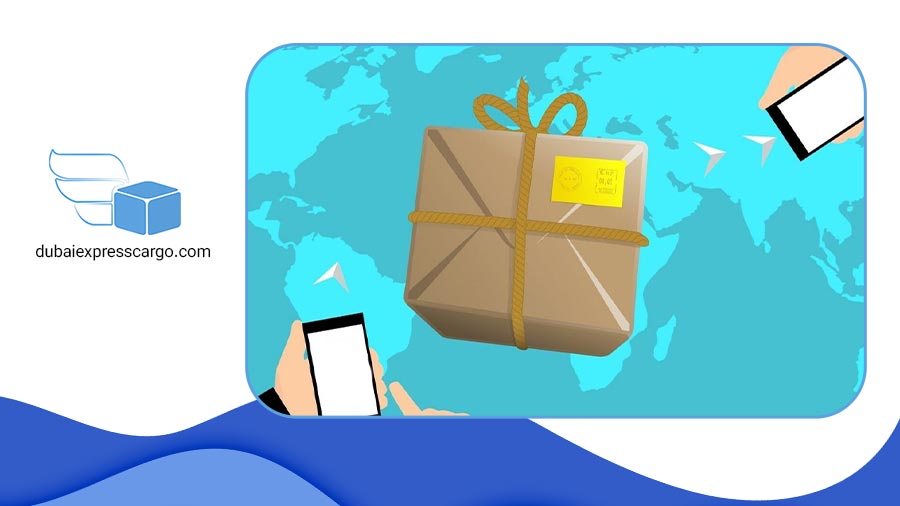
Efficient tracking and monitoring of shipments are crucial aspects of door to door shipping from China to Iran.
With the help of modern tracking tools and technology, businesses can ensure the smooth movement of their goods and maintain transparency throughout the shipping process. Here’s how you can make the most out of shipment tracking:
- Utilizing Tracking Tools and Technology:
Advanced tracking tools, such as GPS-enabled devices and shipment management software, offer real-time updates on the location and status of your cargo.
Integrating these tools into your logistics process allows you to track your shipments from pick-up to delivery accurately. You can plan for timely distribution, improve customer service, and streamline inventory management with precise information.
- Staying Updated on Shipment Status:
By staying informed, you can proactively address challenges and prevent further complications. Many shipping providers offer online tracking portals, allowing you to access real-time updates with just a few clicks.
- Dealing with Delays and Contingency Plans:
Despite careful planning, delays can occur due to various factors, such as adverse weather, customs hold-ups, or unexpected events. Having contingency plans is crucial to minimize the impact of such delays.
This may include maintaining open communication with the shipping provider, exploring alternative routes, or utilizing expedited shipping options when needed.
- Proactive Communication with the Shipping Provider:
Establishing open and proactive communication with your shipping provider is vital for effective shipment tracking. Keep in touch with their customer service team to receive prompt updates and clarify any queries you may have. A reliable shipping company will be responsive to your concerns and provide timely assistance when required.
- Addressing Customs and Documentation Issues:
Customs clearance can sometimes cause delays if there are discrepancies or errors in the documentation. Ensure all necessary shipping documents are accurate, complete, and comply with the customs regulations of both China and Iran. Working with experienced customs brokers can also expedite the clearance process.
- Monitoring Shipment Insurance and Liability Coverage:
Consider obtaining shipment insurance to protect your goods against loss or damage during transit. Verify the coverage details and liability limits with the shipping provider to make informed decisions regarding insurance options.
- Collaborating with Reliable Shipping Partners:
Selecting a reputable and experienced shipping company like Dubai Express Cargo ensures higher reliability and professionalism in handling your D2D shipments. You can be confident in a smooth shipping experience with our expertise and dedicated customer support.
Smooth Customs Clearance

To ensure a seamless customs clearance process during door to door shipping from China to Iran, businesses must take the following steps:
1. Preparing for Customs Inspections:
Be ready for customs inspections by ensuring all shipping documents are accurate, complete, and easily accessible. Familiarize yourself with both countries’ specific inspection procedures and requirements to avoid unnecessary delays.
2. Managing Restricted and Prohibited Goods:
Identify and classify goods that may be restricted or prohibited for import/export in China and Iran. Comply with regulations and obtain the necessary permits or licenses for shipping such items. Avoid sending restricted goods to prevent customs issues.
3. Handling Potential Customs Issues:
Stay proactive and address potential customs issues promptly. Work closely with experienced customs brokers who can guide you through any challenges during customs clearance.
The Role of Dubai Express Cargo in Smooth Customs Clearance
Dubai Express Cargo is committed to ensuring a smooth customs clearance process for your shipments from China to Iran. We assist in preparing accurate and complete shipping documentation, reducing the likelihood of customs delays. Our team is well-versed in handling restricted and prohibited goods, ensuring compliance with regulations.
Related Article: 6 WAY FOR MAKING THE CUSTOMS CLEARANCE PROCESS EASIER
Door to Door Shipping Costs and Budgeting from China to Iran
- Freight Charges and Additional Costs:
Comprehending the various components of D2D shipping costs, including freight charges and additional fees, is crucial.
- Shipping Rates and Discounts:
Explore opportunities to negotiate shipping rates and secure discounts with reliable shipping providers for cost-effective shipping solutions.
- Realistic Shipping Budget:
Plan a realistic shipping budget by considering all expenses, ensuring smooth D2D shipping operations without financial strain.
Tips for a Smooth D2D Shipping Experience
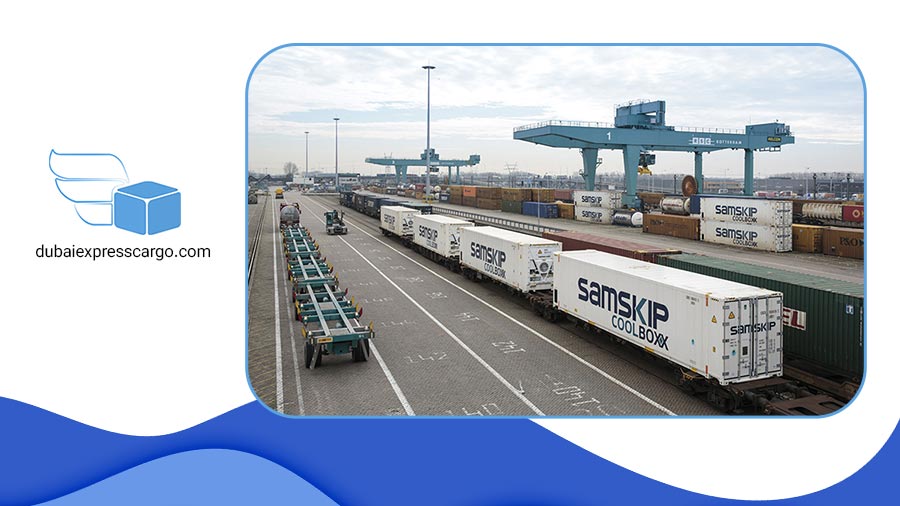
Tips for a Smooth Door-to-Door Shipping Experience:
1. Maintain Proper Communication with Shipping Partners:
Stay in touch with your shipping provider for updates and address any concerns promptly.
2. Double-Check Shipment Details:
Ensure all shipping information is accurate to avoid potential delays or delivery issues.
3. Manage Expectations for Delivery:
Set realistic delivery timelines and communicate them to customers or recipients.
4. Properly Package and Label Goods:
Ensure secure and well-labeled packaging to protect goods during transit and ease handling.
5. Prepare Complete Shipping Documentation:
Accurate and complete shipping documents facilitate smooth customs clearance and delivery.
6. Consider Insurance Coverage:
Opt for shipment insurance to safeguard against loss or damage during shipping.
7. Track Shipments in Real-Time:
Use tracking tools to monitor shipment progress and promptly address any deviations.
8. Plan for Contingencies:
Have backup plans ready to handle unforeseen circumstances that may affect shipping.
9. Work with Reliable Shipping Partners:
Choose a reputable, experienced shipping company like Dubai Express Cargo for a smooth experience.
10. Stay Updated on Shipping Regulations:
Stay informed about shipping regulations and requirements to ensure compliance and avoid potential issues.
Conclusion
Door to door shipping from China to Iran offers businesses a convenient and efficient means of transporting goods. The D2D shipping process involves careful planning, adherence to customs regulations, secure packaging, and accurate documentation. Businesses can ensure timely delivery by selecting the appropriate transportation mode and tracking shipments in real-time.
Key Takeaways for China-Iran Shipments:
- Thoroughly research and comply with customs regulations in both China and Iran to avoid delays.
- Properly package and label goods to protect them during transit and facilitate customs clearance.
- Utilize tracking tools to monitor shipments in real-time and address potential issues promptly.
- Create a realistic shipping budget, considering all costs and negotiating with shipping partners for discounts.
- Choose reliable shipping partners like Dubai Express Cargo for seamless, cost-effective, door-to-door shipping.
To achieve a successful D2D shipping experience, reliable shipping partners like Dubai Express Cargo play a pivotal role. With our expertise, efficient communication, and commitment to customer satisfaction, businesses can confidently navigate the complexities of international shipping.

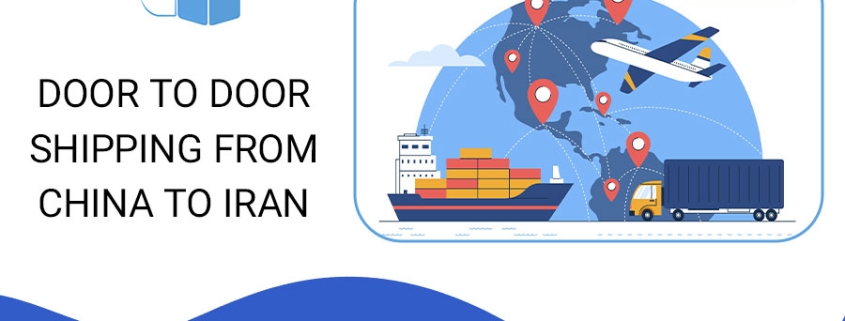


Leave a Reply
Want to join the discussion?Feel free to contribute!